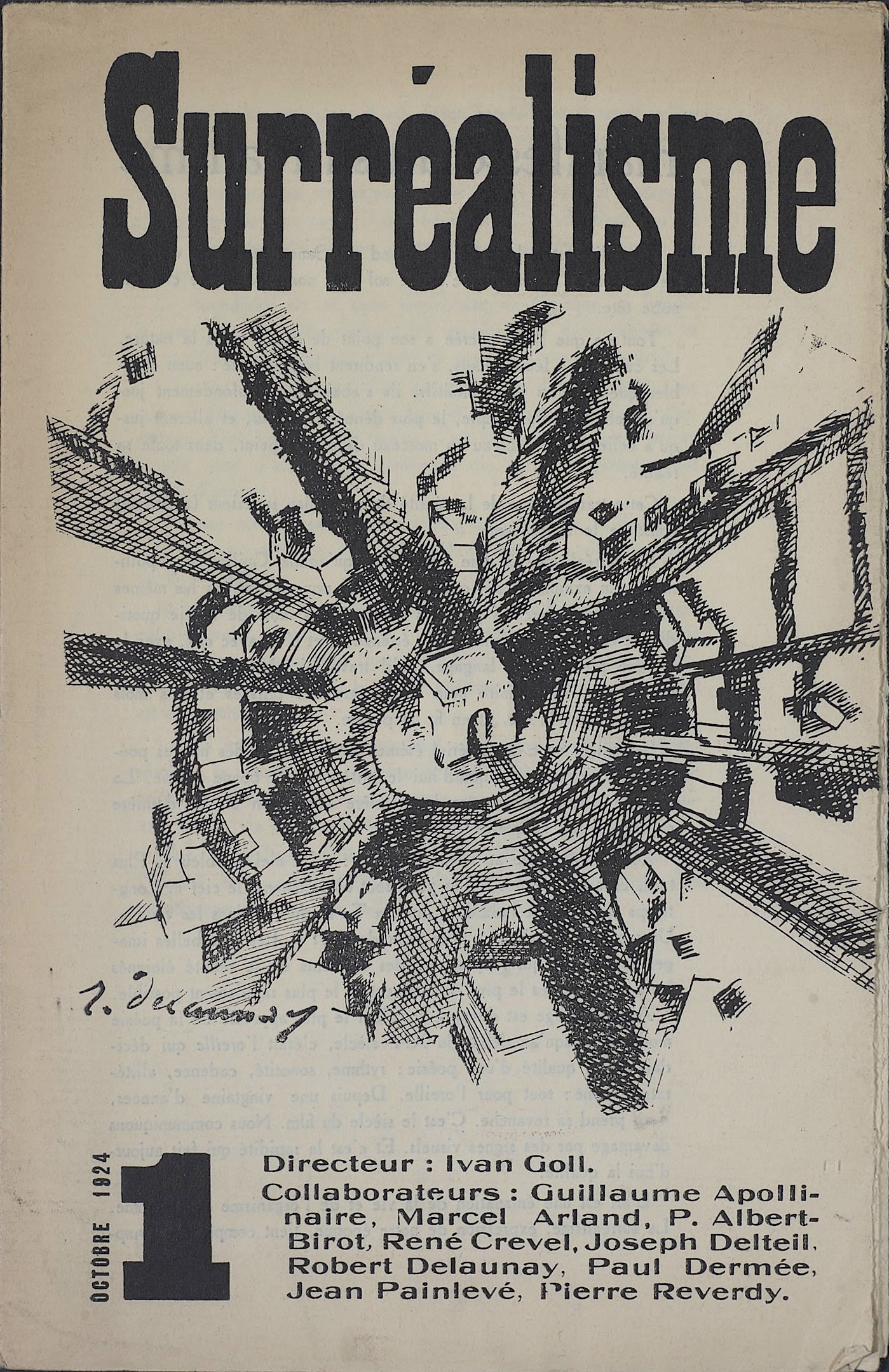People don’t seem to write a lot of manifestos these days. Or if they do write manifestos, they don’t make the impact that they would have a century ago. In fact, this year marks the hundredth anniversary of the Manifeste du surréalisme, or Surrealist Manifesto, one of the most famous such documents. Or rather, it was two of the most famous such documents, each of them written by a different poet. On October 1, 1924, Yvan Goll published a manifesto in the name of the surrealist artists who looked to him as a leader (including Dada Manifesto author Tristan Tzara). Two weeks later, André Breton published a manifesto — the first of three — representing his own, distinct, group of surrealists with the very same title.
Though Goll may have beaten him to the punch, we can safely say, at a distance of one hundred years, that Breton wrote the more enduring manifesto. You can read it online in the original French as well as in English translation, but before you do, consider watching this short France 24 English documentary on its importance, as well as that of the surrealist art movement that it set off.
“There’s day-to-day reality, and then there’s superior reality,” says its narrator. “That’s what André Breton’s Surrealist Manifesto was aiming for: an artistic and spiritual revolution” driven by the rejection of “reason, logic, and even language, all of which its acolytes believed obscured deeper, more mystical truths.”

“The realistic attitude, inspired by positivism, from Saint Thomas Aquinas to Anatole France, clearly seems to me to be hostile to any intellectual or moral advancement,” the trained doctor Breton declares in the manifesto. “I loathe it, for it is made up of mediocrity, hate, and dull conceit. It is this attitude which today gives birth to these ridiculous books, these insulting plays.” He might well have also seen it as giving rise to events like the First World War, whose grinding senselessness he witnessed working in a neurological ward and carrying stretchers off the battlefield. It was these experiences that directly or indirectly inspired a wave of avant-garde twentieth-century art, more than a few pieces of which startle us even today — which is saying something, given our daily diet of absurdities in twenty-first century life.
Related content:
An Introduction to Surrealism: The Big Aesthetic Ideas Presented in Three Videos
A Brief, Visual Introduction to Surrealism: A Primer by Doctor Who Star Peter Capaldi
The Forgotten Women of Surrealism: A Magical, Short Animated Film
Based in Seoul, Colin Marshall writes and broadcasts on cities, language, and culture. His projects include the Substack newsletter Books on Cities, the book The Stateless City: a Walk through 21st-Century Los Angeles and the video series The City in Cinema. Follow him on Twitter at @colinmarshall or on Facebook.


Leave a Reply